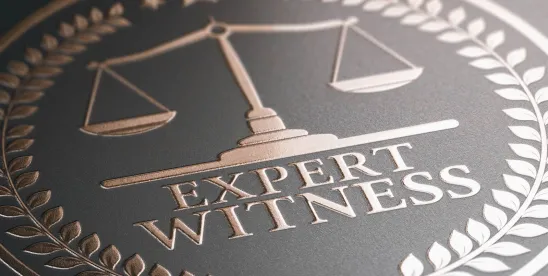In high-stakes litigation, expert testimony that cannot withstand a Daubert or Robinson challenge can derail even the most well-prepared case. A failed Daubert or Robinson challenge can leave attorneys without their key witnesses due to flawed methodology, insufficient preparation, or a misalignment between the expert’s qualifications and the case facts.
To explore how litigators can avoid this pitfall, IMS Senior Jury Consulting Advisor Chris Dominic sat down with veteran trial attorney Larry Cotten of Cotten Schmidt. A 46-year courtroom veteran, Larry made history as the first lawyer in Texas to successfully bring a Robinson challenge, helping shape the state’s evidentiary standards through the landmark DuPont v. Robinson decision.
Their discussion delivered valuable insight into expert witness strategy, from selection and preparation to courtroom presentation and judicial expectations.
The Landmark Case That Changed Texas Trial Practice
The DuPont v. Robinson case emerged from a wave of litigation in the 1990s alleging that DuPont’s fungicide, Benlate, harmed ornamental plants. The plaintiff’s expert witness, Dr. Carl Whitcomb, was a key fixture in these cases across the country. When the case reached Texas, Larry saw an opportunity.
Drawing on the US Supreme Court’s then-recent Daubert v. Merrell Dow Pharmaceuticals ruling, Larry noted the parallels between Federal Rule of Evidence 702 and Texas Rule 702. He crafted a challenge that ultimately persuaded the Texas Supreme Court to adopt a similar gatekeeping role for judges, establishing what is now known as the Robinson standard.
Strategies for Supporting or Challenging Experts
Based on his experience, Larry offered practical, battle-tested strategies for both sides of the courtroom.
Supporting Your Expert:
- Select Strategically: Choose an expert with proven expertise in the proper discipline. Do not rely on titles alone. Take a comprehensive look at the expert’s background, experience, and fit for the specific issues in your case.
- Educate Thoroughly: Ensure they understand not only the facts of the matter but also the legal standards to which they will be held.
- Prepare In Person: Build trust and coach them face-to-face on how to communicate effectively under scrutiny.
“You need to make sure that your expert knows the legal side as well as the scientific side,” Larry emphasized. “And that takes real preparation and collaboration.”
Challenging the Opposition:
- Do Your Homework: Use the required disclosure of prior depositions and trial testimony to find inconsistencies in the opposing expert’s testimony.
- Focus on Methodology: Evaluate whether the expert adheres to accepted standards and addresses all Robinson factors.
- Know the Judge: Tailor your strategy to the judge’s history with expert challenges. Some judges are strict gatekeepers; others are more permissive.
Judges as Gatekeepers
One of Robinson and Daubert's most transformative impacts was the shift in responsibility from juries deciding the weight to be given to the testimony or the credibility of the expert witness to judges in determining the admissibility of expert witness testimony. As Larry explained, “Judges didn’t have this role until Robinson. Some would never grant these motions, others took their gatekeeping duty seriously to prevent reversible error on appeal.”
Understanding a judge’s tendencies, whether they lean toward broad admissibility or strict scrutiny, can shape your entire litigation strategy.
Visuals That Clarify, Not Confuse
Expert demonstratives can make or break a case. Larry and Chris agreed that clarity is key when utilizing visual aids.
“Sometimes the demonstratives are so technical that only the testifying expert understands them,” Chris noted. Larry added, “If you’ve got clear demonstratives that help translate what might otherwise go over someone’s head... that’s very helpful for decision-makers.”
Whether in a hearing or at trial, visuals should simplify, not complicate, the expert’s message.
Start Early, Stay Strategic
For plaintiff attorneys especially, early expert engagement is critical. “Almost every case today is going to have some expert testimony,” Larry said. “Sometimes the law requires it, and other times you need it to clearly explain complex issues to the court. You can’t start preparing early enough.”
Bringing an expert witness on board at the outset, often even before filing the complaint, allows time to align strategically and prepare them to withstand a potential Daubert or Robinson challenge.




 />i
/>i
